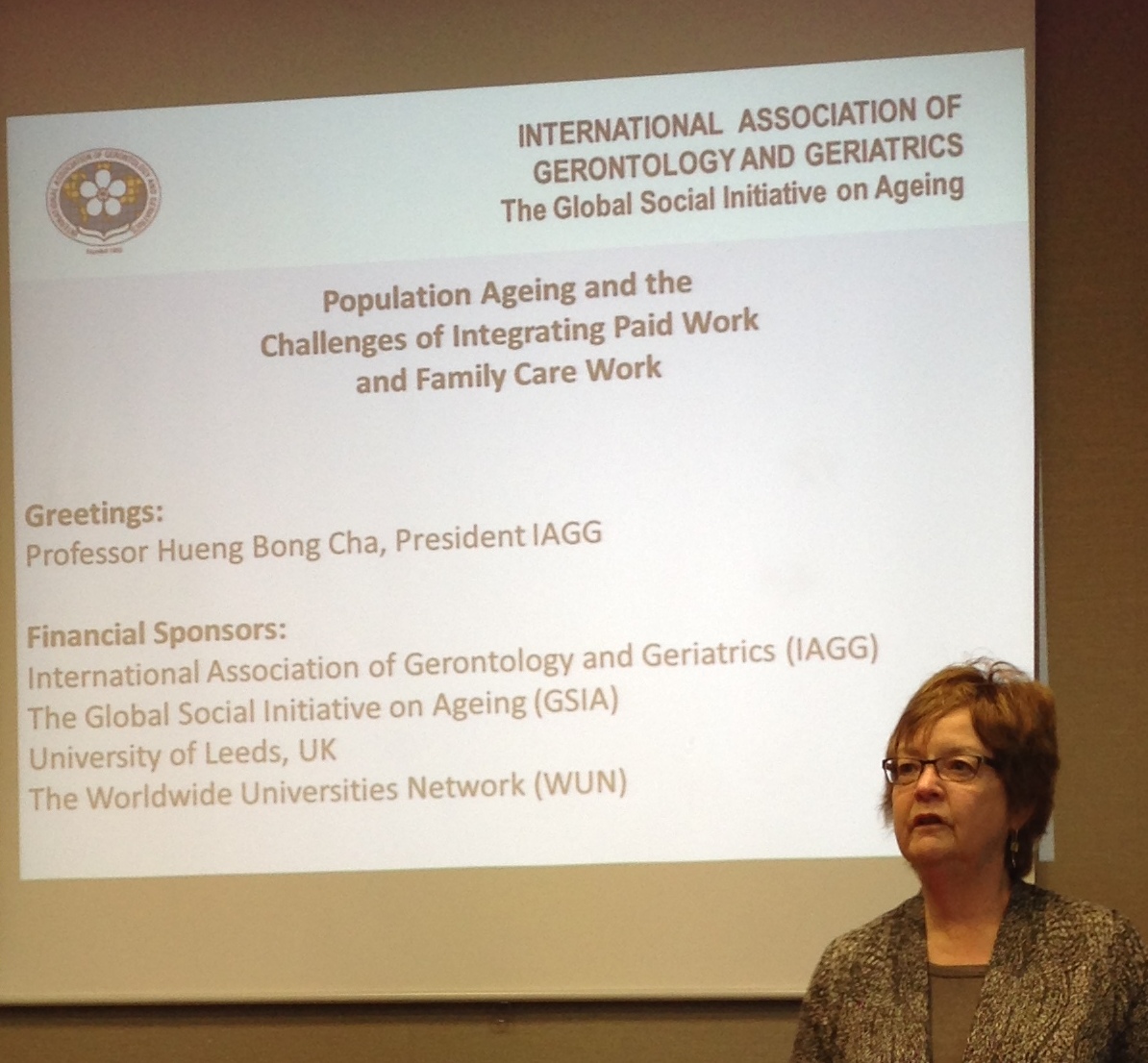
For some of us the IAGG-ER congress in Dublin started a bit earlier with a very interesting master class on Population Ageing and the Challenges of Integrating Paid Work and Family Care Work.
The master class is organised by The IAGG Global Social Initiative on Ageing (GSIA).
The morning started with a presentation about Demographic Issues by Kate O’Loughlin. Her presentation was followed by a discussion on Economic Issues by Janet Fast, from the University of Alberta, and a presentation on Workplace Issues by Sue Yeandle, from the University of Leeds.
After the lunch break, participants were divided into two groups and asked to briefly present the poster each one had previously prepared. We all gave and received comments and suggestions from the participants and the master class conveners. The final comments and a general overview about the posters were assigned to Judith Phillips, from Swansea University.
The presentations and posters highlighted the increasing importance of caregivers to an ageing society. The making of age-friendly cities will have to make special consideration to their needs and challenges.
One interesting example raised during the Master Class is the need to re-think commuting trajectories and planning. Caregivers, for example, will not only commute from home (A) to work (B), but might have often to included the home of the person they assist (C) on their daily routines.
Having in mind our specific interest in the role of technology and the fact the care may assume many different forms – not only physical support – it is important to remember that the potential of the current information and telecommunication revolution is still to be fully explored.
At the same time as voice and video experience over IP are improving – allowing family members, caregivers, and telemedicine to mitigate geographic barriers – “big data” and the “internet of things” contributions to improve our daily lives are still almost completely unexplored.
